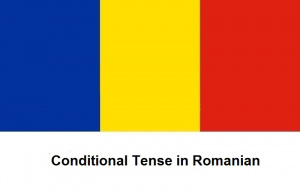Difference between revisions of "Language/Romanian/Grammar/Conditional-Mood"
m (GrimPixel moved page Language/Romanian/Grammar/Conditional-Tense to Language/Romanian/Grammar/Conditional-Mood) |
m (Quick edit) |
||
| Line 122: | Line 122: | ||
==Sources== | ==Sources== | ||
https://www.reddit.com/r/romanian/comments/eiht1r/the_future_tense_and_the_conditional_mode_in/ | https://www.reddit.com/r/romanian/comments/eiht1r/the_future_tense_and_the_conditional_mode_in/ | ||
==Related Lessons== | |||
* [[Language/Romanian/Grammar/Questions|Questions]] | |||
* [[Language/Romanian/Grammar/Ablative-Case-in-Romanian|Ablative Case in Romanian]] | |||
* [[Language/Romanian/Grammar/The-Nominative-Case-in-Romanian|The Nominative Case in Romanian]] | |||
* [[Language/Romanian/Grammar/Prepositions|Prepositions]] | |||
* [[Language/Romanian/Grammar/Instrumental-Case-in-Romanian|Instrumental Case in Romanian]] | |||
* [[Language/Romanian/Grammar/Possessive-Case-in-Romanian|Possessive Case in Romanian]] | |||
* [[Language/Romanian/Grammar/Genitive-Case-in-Romanian|Genitive Case in Romanian]] | |||
* [[Language/Romanian/Grammar/Cases|Cases]] | |||
* [[Language/Romanian/Grammar/Adjectives|Adjectives]] | |||
* [[Language/Romanian/Grammar/Comaratives-and-Superlatives|Comaratives and Superlatives]] | |||
Revision as of 16:31, 26 February 2023
Hello everybody,
In today's lesson you will learn how to use the ¨CONDITIONAL MOOD¨ in Romanian. Feel free to edit this wiki page!
Good learning! :)
CONDITIONAL PRESENT
The conditional mood has two tenses: conditional present and conditional perfect.
It is formed by: the "a avea" second form auxiliary + the infinitive of the verb
Auxiliaries
- Eu: aș
- Tu: ai
- El: ar
- Noi: am
- Voi: ați
- Ei: ar
Example
A fugi (to run)
- Eu aș fugi
- Tu ai fugi
- El ar fugi
- Noi am fugi
- Voi ați fugi
- Ei ar fugi
CONDITIONAL PERFECT
It is formed of:
the same auxiliary, + the "fi" auxiliary + the past participle of the verb
Example
A vrea (to want)
- Eu aș fi vrut
- Tu ai fi vrut
- El ar fi vrut
- Noi am fi vrut
- Voi ați fi vrut
- Ei ar fi vrut
EXAMPLE OF USE
Rule
- FIRST PART OF THE PHRASE: THE VERB IN THE SUBJUNCTIVE IMPERFECT.
- SECOND PART OF THE PHRASE: THE VERB IN THE CONDITIONAL TENSE.
Examples in several languages
NB: feel free to add you own language
| English | Romanian | Portuguese | French |
|---|---|---|---|
| IF I HAD MONEY,
I WOULD BUY |
Dacă aș fi avut bani, aș fi cumpărat | SE EU TIVESSE DINHEIRO,
EU COMPRARIA |
Si j'avais de l'argent,
j'acheterais |
| IF YOU HAD MONEY,
YOU WOULD BUY |
Dacă ai fi avut bani, ai fi cumpărat | SE VOCÊ TIVESSE DINHEIRO,
VOCÊ COMPRARIA |
Si tu avais de l'argent,
tu acheterais |
| IF HE HAD A CAR,
HE WOULD GO WITH YOU |
Dacă ar fi avut mașină, ar fi mers cu tine | SE ELE TIVESSE UM CARRO,
ELE IRIA COM VOCÊ |
s'il avait de l'argent
il acheterait |
| IF WE HAD MONEY,
WE WOULD TRAVEL |
Dacă am fi avut bani, am fi călătorit | SE NÓS TIVÉSSEMOS DINHEIRO,
NÓS VIAJARÍAMOS |
Si nous avions de l'argent,
nous acheterions |
| IF YOU (PLUR) HAD THE TICKET,
YOU (PLUR) WOULD GO |
Dacă ați fi avut bilet, ați fi mers | SE VOCÊS TIVÉSSEM O BILHETE,
VOCÊS IRÍAM |
Si vous aviez de l'argent,
vous acheteriez |
| IF THEY HAD TIME,
THEY WOULD READ THE BOOKS |
Dacă ar fi avut timp, ar fi citit cărțile | IF ELES TIVESSEM TEMPO,
ELES LERÍAM OS LIVROS |
S'ils avaient de l'argent,
ils acheteraient |
Sources
https://www.reddit.com/r/romanian/comments/eiht1r/the_future_tense_and_the_conditional_mode_in/
